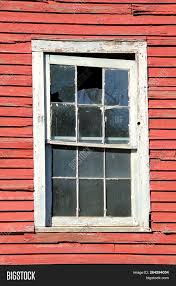Discover the common causes of sagging vinyl windows and learn how professional help can restore their functionality.
Understanding the Causes of Sagging Vinyl Windows
Vinyl windows can sag for a variety of reasons. One common cause is poor installation. If the windows were not properly installed, they may not be able to support their own weight, leading to sagging over time. Another cause of sagging is excessive heat exposure. Vinyl windows can warp and deform when exposed to high temperatures for extended periods, which can result in sagging. Additionally, the age of the windows can contribute to sagging. Over time, the vinyl material may deteriorate and lose its structural integrity, causing the windows to sag.
It’s important to note that sagging vinyl windows not only affect the appearance of your home, but they can also impact their functionality. Sagging windows may not open and close properly, leading to drafts, decreased energy efficiency, and potential security issues. Therefore, it’s crucial to address the issue promptly to restore the functionality and aesthetics of your windows.
Impact of Weather Conditions on Vinyl Windows
Weather conditions can have a significant impact on vinyl windows and contribute to their sagging. Extreme temperature changes, such as hot summers and cold winters, can cause the vinyl material to expand and contract. This continuous expansion and contraction can put stress on the windows, leading to sagging over time.
In addition to temperature fluctuations, exposure to excessive moisture can also be a contributing factor. Vinyl windows that are constantly exposed to rain, humidity, or high levels of condensation may absorb the moisture, which can weaken the material and result in sagging.
To minimize the impact of weather conditions on vinyl windows, it’s important to choose high-quality windows that are specifically designed to withstand the elements. Regular maintenance, such as cleaning and inspecting the windows, can also help identify and address any issues before they worsen.
Signs that Your Vinyl Windows are Sagging
Identifying sagging vinyl windows early on can help prevent further damage and ensure timely repairs. Here are some signs to look out for:
– Difficulty opening and closing the windows: Sagging windows may not operate smoothly and may require excessive force to open or close.
– Visible gaps between the window frame and the wall: If you notice gaps or spaces between your vinyl windows and the surrounding wall, it may indicate sagging.
– Uneven or misaligned window sashes: Sagging windows can cause the sashes to become misaligned or uneven, affecting their proper functioning.
– Cracks or breaks in the window frame: Sagging can put stress on the window frame, leading to cracks or breaks.
If you notice any of these signs, it’s recommended to seek professional help to assess the extent of the sagging and determine the appropriate course of action.
Benefits of Seeking Professional Help for Sagging Vinyl Windows
When dealing with sagging vinyl windows, it’s advisable to seek professional help. Here are some benefits of hiring a professional:
– Expertise and experience: Professionals have the knowledge and experience to accurately diagnose the cause of sagging and provide appropriate solutions.
– Proper repairs: Professionals can ensure that the sagging windows are repaired correctly, addressing the underlying issues and restoring their functionality.
– Time and cost savings: Attempting to fix sagging windows without the necessary skills and tools can lead to further damage and costly repairs. Hiring a professional can help save time and money in the long run.
– Warranty coverage: Many professionals offer warranties for their services, providing added peace of mind and protection for your investment.
By seeking professional help, you can ensure that your sagging vinyl windows are repaired effectively and efficiently, prolonging their lifespan and maintaining the value of your home.
Preventative Measures to Avoid Sagging Vinyl Windows
While sagging vinyl windows can be repaired, taking preventive measures can help avoid the issue altogether. Here are some tips to prevent sagging:
– Proper installation: Ensure that your vinyl windows are installed correctly by hiring a reputable and experienced professional.
– Regular maintenance: Clean and inspect your windows regularly to identify any signs of sagging or other issues. Promptly address any problems to prevent further damage.
– Avoid excessive heat exposure: Protect your vinyl windows from prolonged exposure to high temperatures by using blinds, curtains, or window films to block direct sunlight.
– Manage moisture: Keep your windows dry and well-ventilated to prevent moisture absorption and potential damage to the vinyl material.
By following these preventative measures, you can maintain the structural integrity of your vinyl windows and minimize the risk of sagging.

